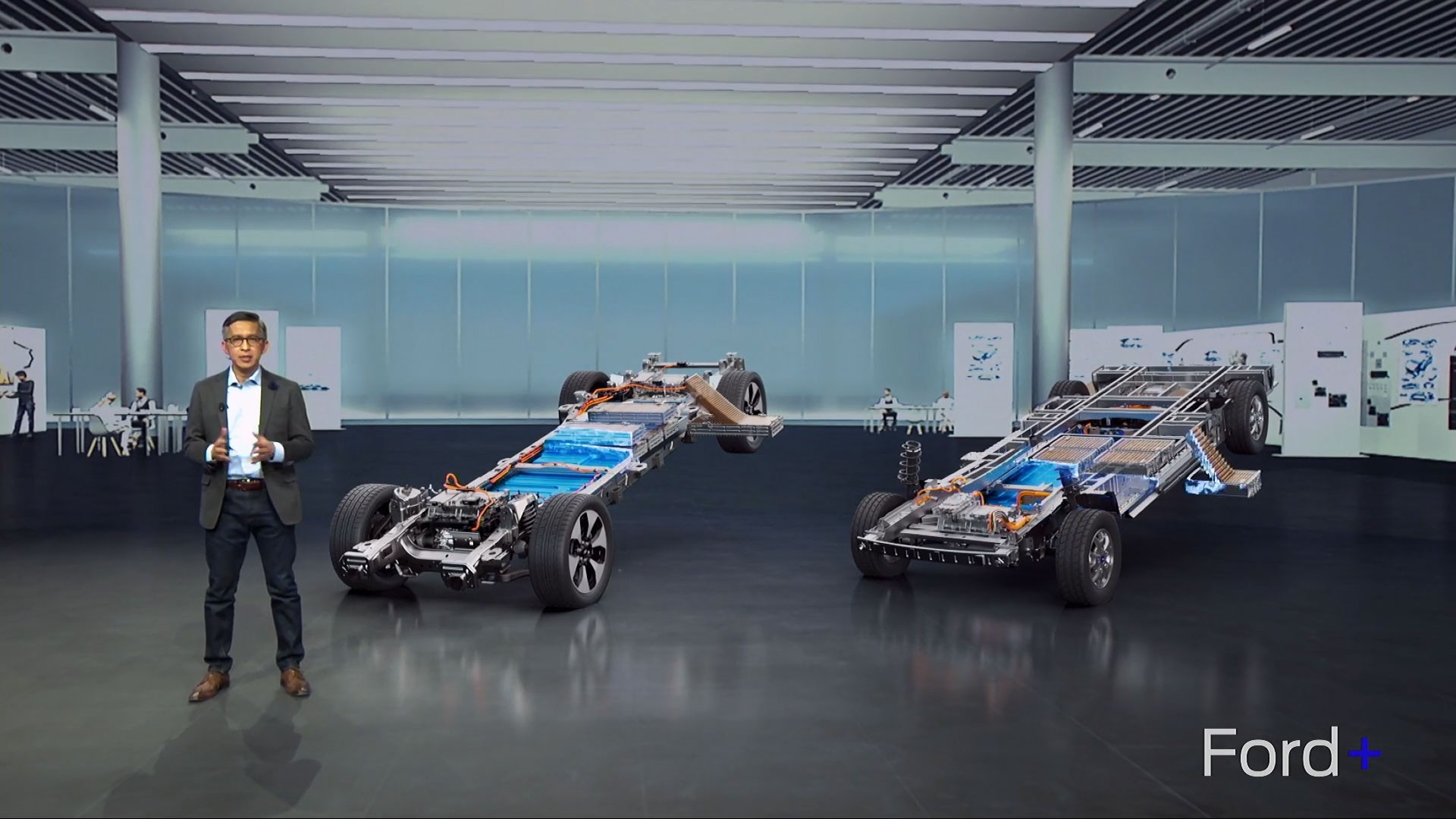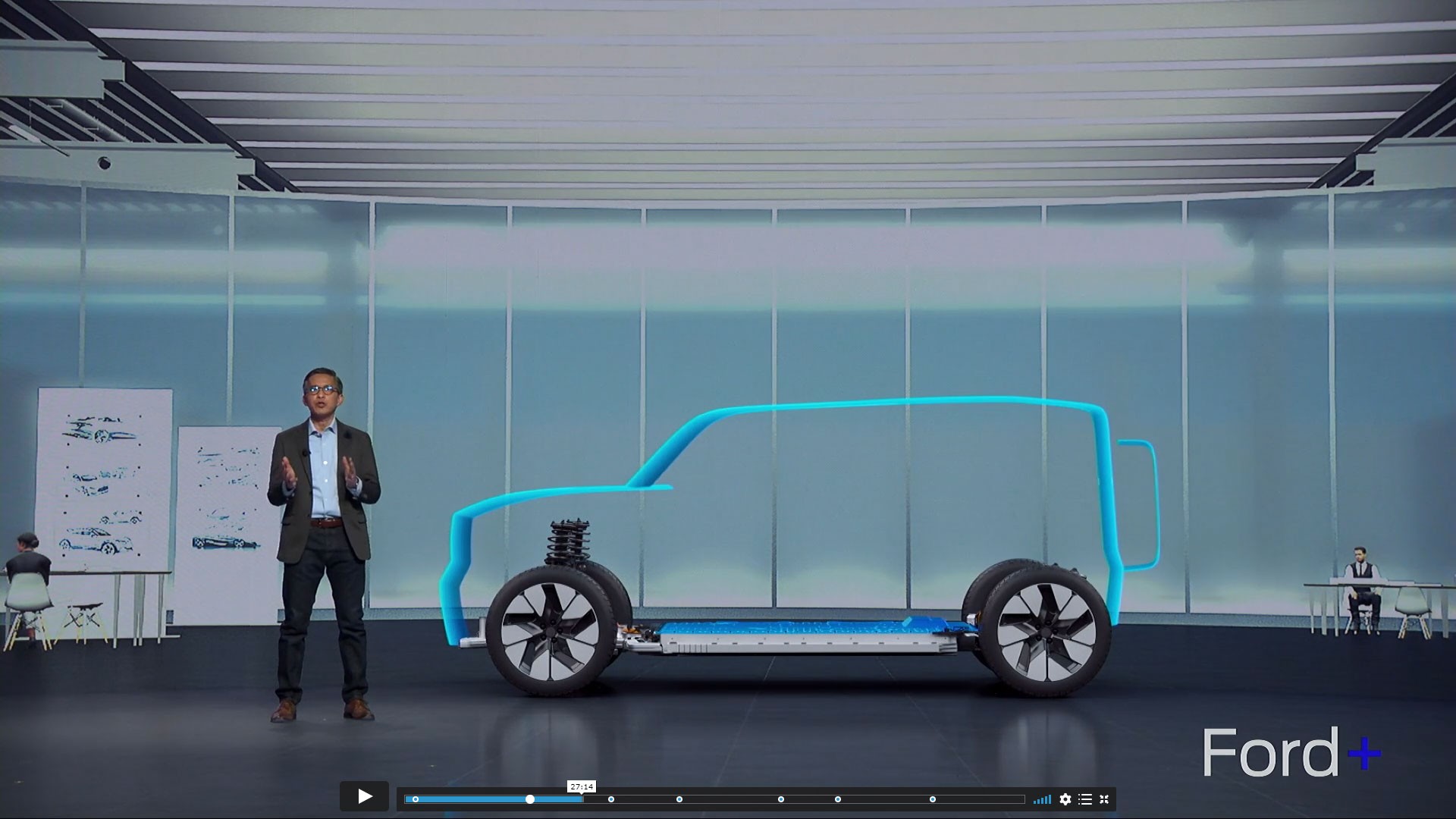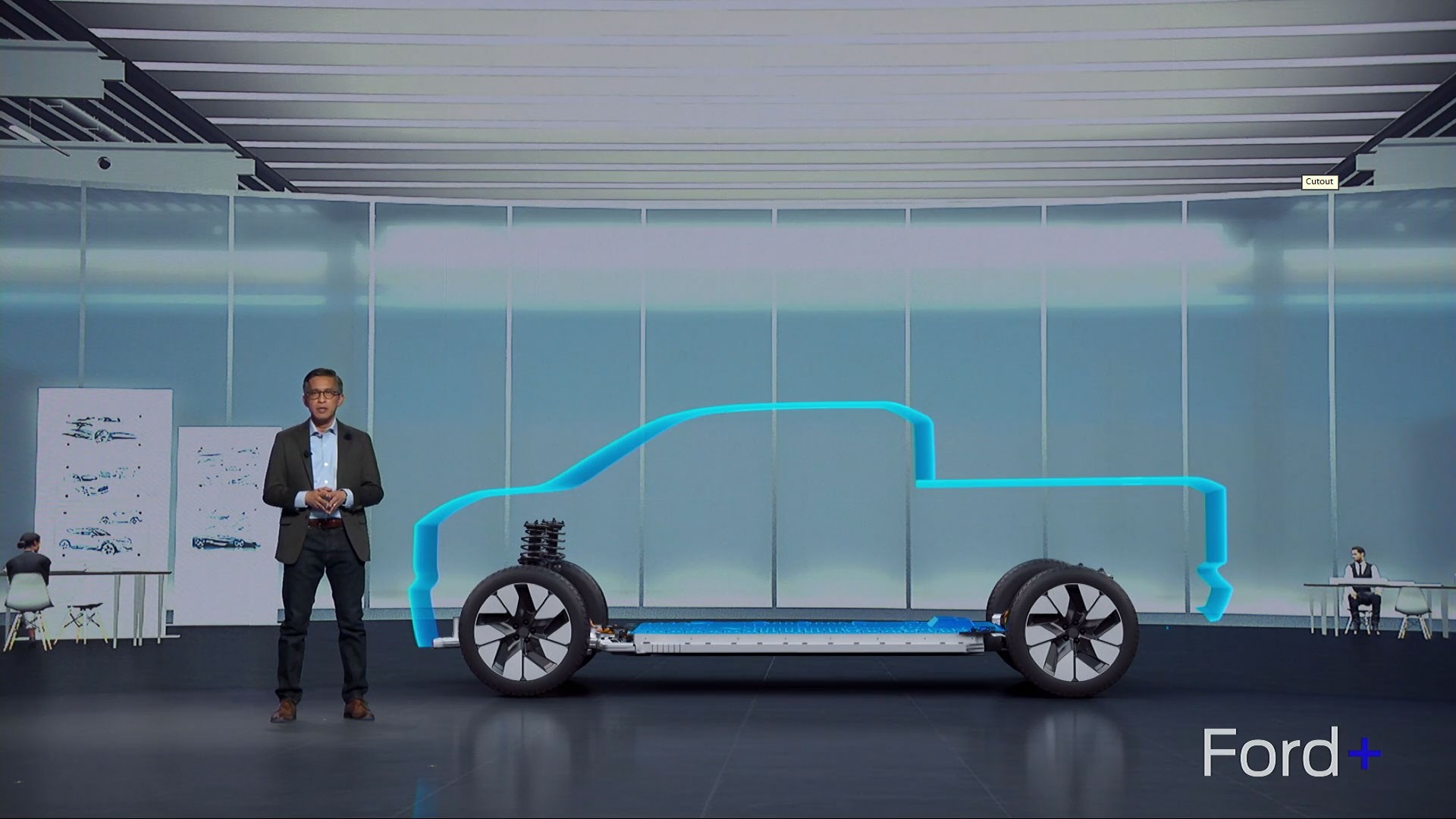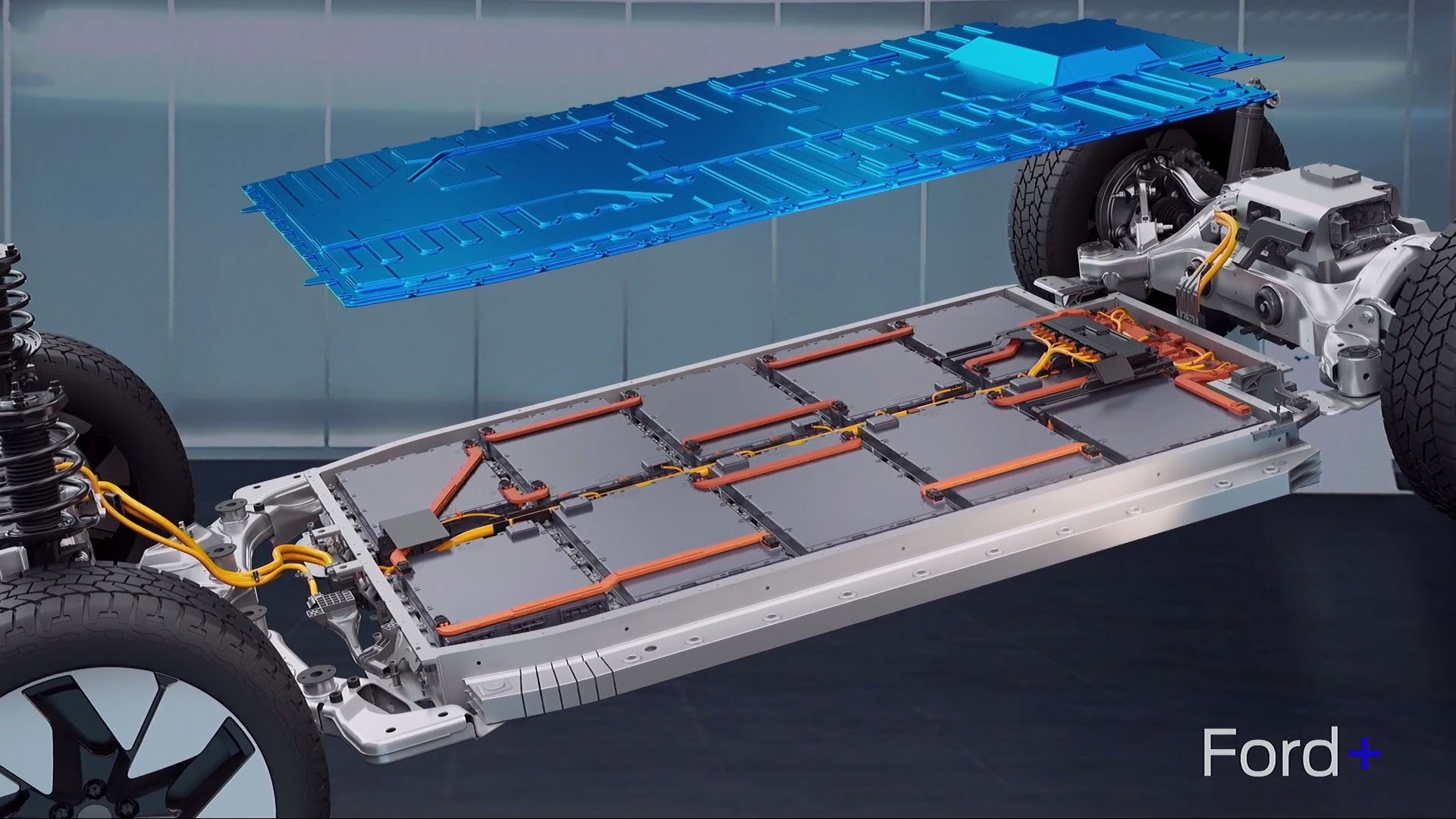
Snapshot
- Ford set to release two new EV platforms in its new models
- Expected US$30bn (AU$38.6bn) investment in EV technology by 2025
- 40 per cent of Fords sold by 2030 to be electric
The Ford Motor Company has announced two new EV platforms which will underpin a range of models, doing so thanks to an US$30 billion (AU$38.6 billion) investment in EV technology by 2025.
Ford’s investment in its EVs is increasing at a rapid rate as it starts to play catch-up to its competitors, going from an estimated US$11.5 billion (AU$14.8 billion) by 2025 in its projections last year and increasing to US$22 billion ($28.3 billion) at the start of 2021 before the new number was released this morning.
The growing investment reflects Ford’s expectations of how EV’ will play a role in the future of the company, expecting EV sales to account for 40 per cent of all new vehicles sold globally by 2030.

Ford revealed its two new EV platforms at a presentation overnight, each being the base architecture of a wide range of models already within the Ford range.
Codenamed GE2, the smaller of the two platforms is an evolution of the existing architecture which was developed for the Mustang Mach-E, expected to be launched first underneath the Ford Explorer and Lincoln Aviator.
Screenshots from the presentation show the GE2 platform will also underpin the new Transit van as well as a Bronco-like off-roader, while an all-electric Mustang is also on the cards.

The larger platform is set to be the base upon which the next generation of F-150 Lightnings will be built, expanding out to full-size SUVs like the Expedition and Lincoln Navigator.
It is unclear whether these models will be available in Europe or just in the United States, given Ford has entered into a joint venture with Volkswagen to use the German marque’s MEB platform in its smaller, family-sized vehicles.

All of Ford’s new EV platforms will use batteries made in-house after it announced a joint venture with South Korean firm SK Innovation last week, building two factories in the United States under the name BlueOvalSK.
While IonBoost-branded lithium ion batteries feature in the new architecture and IonBoost Pro lithium-iron-phosphate batteries will be used in commercial vehicles, Ford is also developing solid-state batteries with the assistance from US developer Solid Power.




